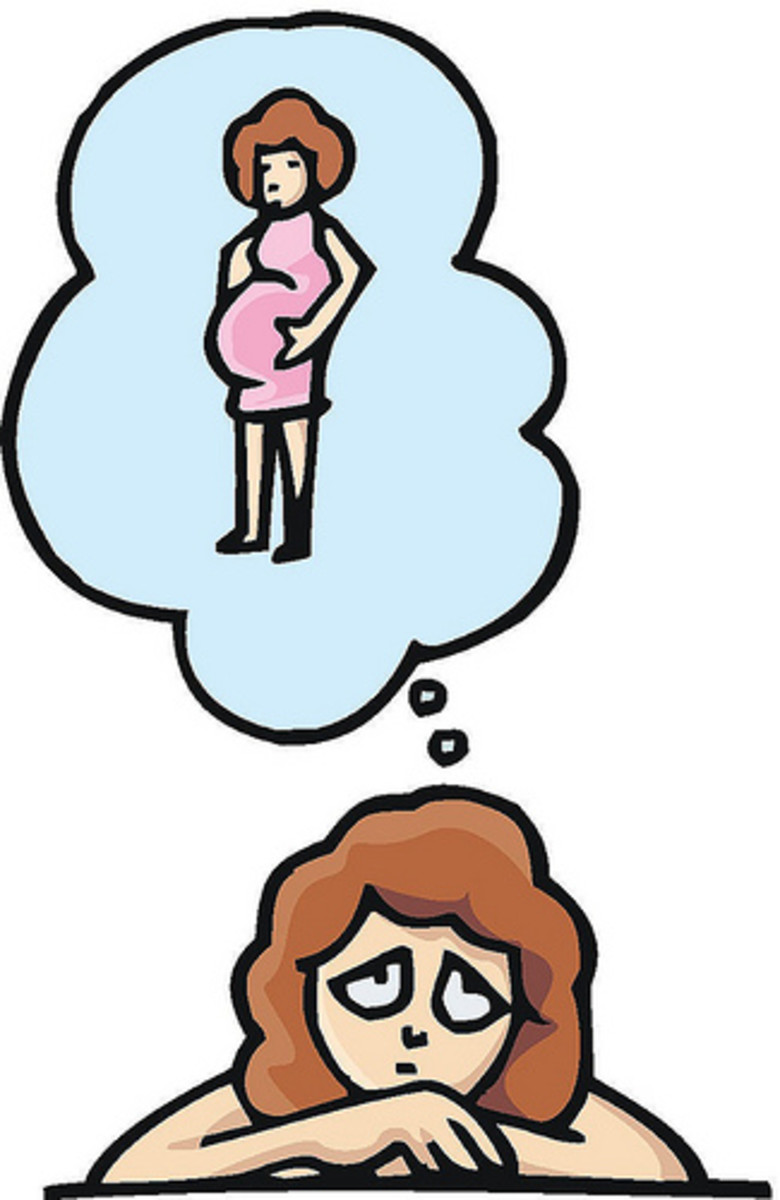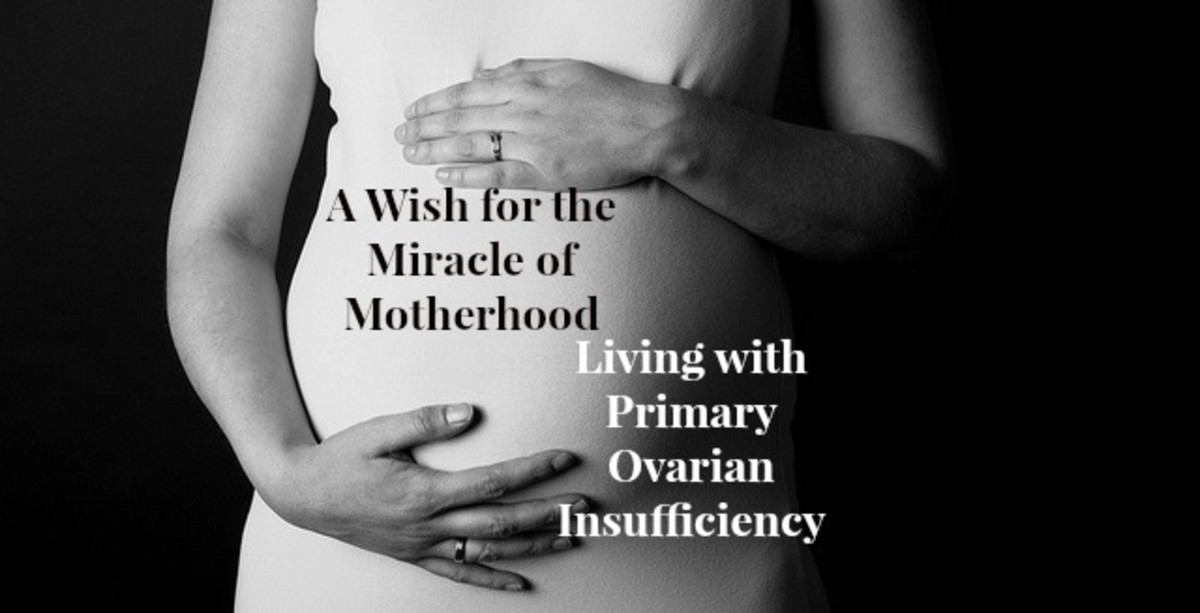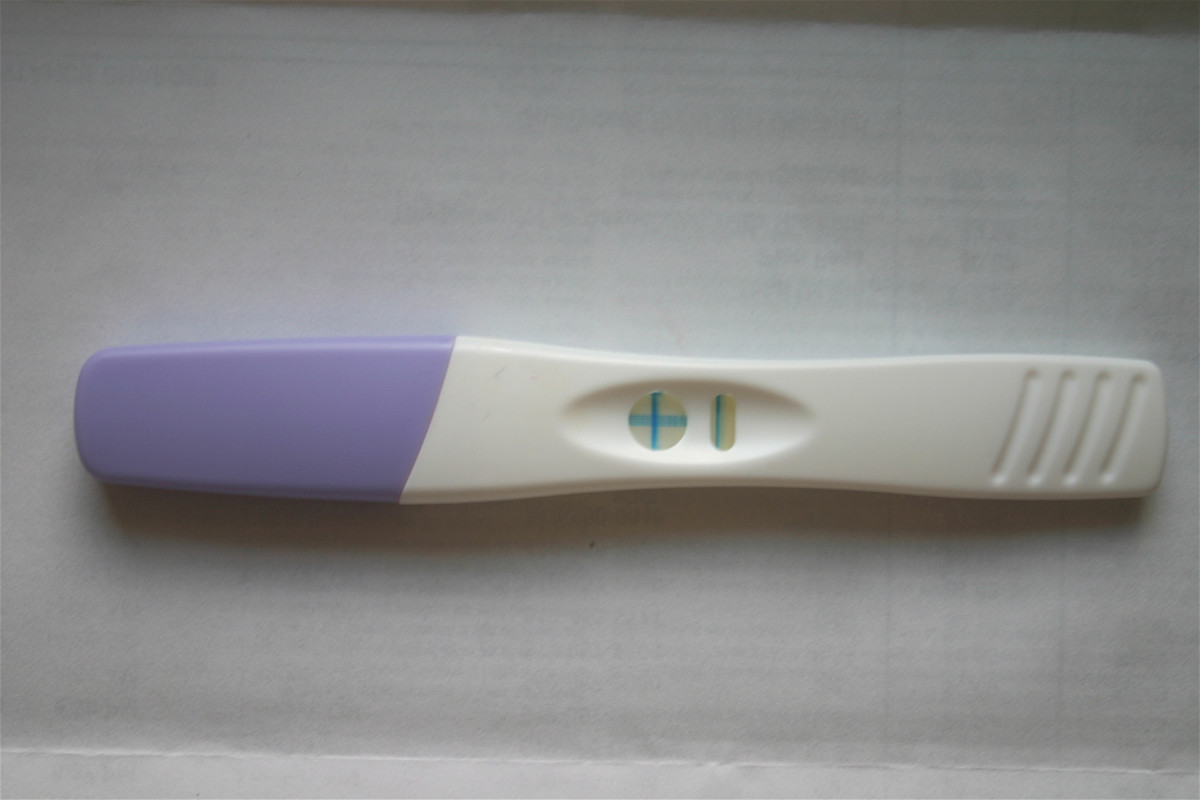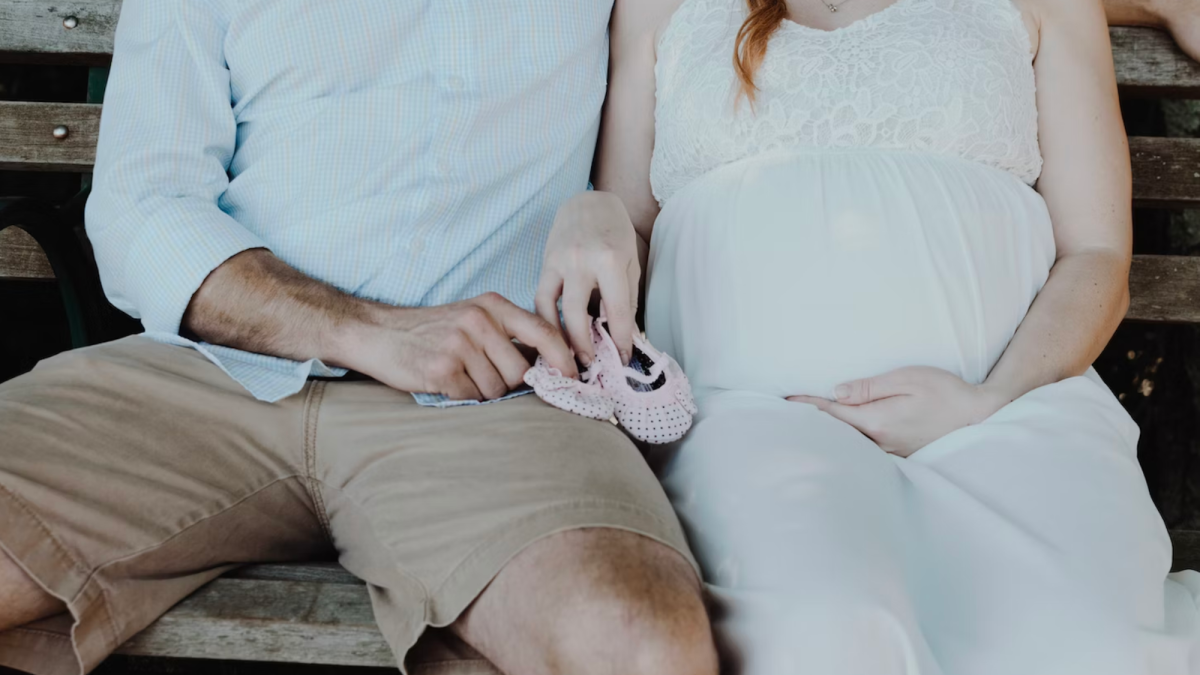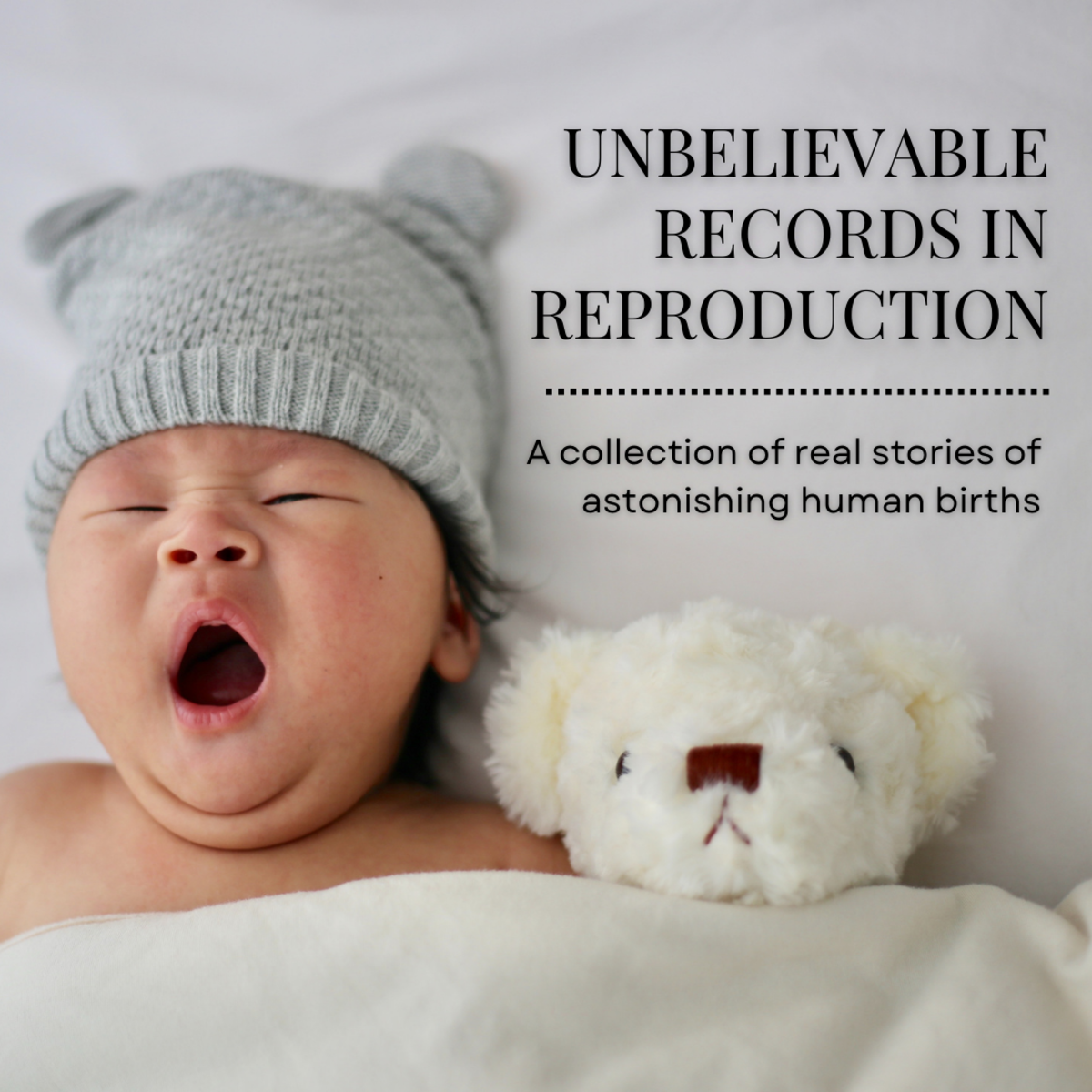By Not Raising More Awareness, We Are Helping No One

Over the last few years, I’ve finally gotten over the anger of spending more than three years of my life trying to conceive through fertility treatments. I’m not saying that it doesn’t annoy me every so often when I hear of people getting pregnant after their first attempt, but it doesn’t happen nearly as often as it once did. Since it was during my fertility journey that I finally found the courage to uninhibitedly pursue my dream of writing among other pursuits, I now choose to remember the good that came out of it. (As many of you know through my previous work, for various personal reasons, my husband and I decided that adoption and surrogacy were not in the cards for us.)
One challenge that I still struggle with, though, is loneliness. Don’t get me wrong, I have a great group of friends and family, but the infertility experience is one that only others who have traveled down that road can relate to. What I have found to be elusive: people who have experienced the nightmare of infertility and remain childless; what I like to call “childless not by choice.”
As mentioned, while I’ve made peace with the fact that I would never have children and I’m sometimes even grateful when I see the hardships parents deal with that come with it, sometimes there are residual feelings of resentment, especially since almost everyone around me has children or are about to have children. In this situation, you can’t help but feel like an outsider. Thoughts that you are different, weird, a freak cross your mind. You even talk yourself into believing that people with children think themselves to be better than you. Unreasonable? Absolutely. But sadly, true.
What makes dealing these thoughts and emotions all the more difficult is the fact that, for some of us, it’s nearly impossible to find others in the same predicament. I’ve met many people who have gone through infertility, but they were all eventually successful. Then there are the friends that are childless by choice. These are people that never had any desire for children and are happy without them. They have never experienced that desire and the heartbreaking disappointment that goes hand in hand with it. According to Linda D. Applegarth, Ed.D., director of psychological services at the Perelman Cohen Center, “Having difficulty getting pregnant can cause as much grief as losing a loved one. But it’s different. It is chronic and elusive. There’s a fear that life will be eternally empty. Some feel a sense of damage and brokenness; it goes to the heart of who they are.” Don’t even think of telling me that this can’t have a lasting effect on a person.
Each time I went through the process of pumping myself full of hormones and subjected myself to invasive exams only to receive a call informing me that the pregnancy test was negative, I experienced the broken heart all over again as well as the grief of what could have been. Then began the next cycle, with the same outcome. Prior to this I never knew I was capable of crying so hard or feeling so much pain. Until I read the quote from Dr. Applegarth above, I thought I was being melodramatic and my husband even said as much.
What made everything worse were the insensitive, albeit well-meaning, platitudes offered by others that had never been in my shoes. The suggestions that if I simply relax and/or take a vacation I’ll get pregnant. (If it were that easy, don’t you think infertility wouldn’t exist?) Or saying, “you should be grateful for what you already have in your life.” (Do me a favor. Never say that to someone who’s genuinely grieving. How would you like that said to you if your heart was broken?) Or there’s the story of that ambiguous woman everyone knows about but never met: so-and-so’s aunt worked with someone who knew someone else that couldn’t get pregnant but when this person adopted a child she miraculously conceived. (Yep, I heard about her, too). I’m sure at least one of you reading this knows someone personally that this happened to, but the point I’m trying to make here is that it honestly does not happen very often.
I had joined an online community where we shared our experiences and I met some wonderful, sympathetic people. However, I couldn’t shake the feeling that whenever some of us discussed our negative results, there was a tendency to underplay what we were truly feeling. I remember after receiving the negative results I would stay offline for a few days, speaking to no one, drinking, staring at the television until I no longer felt anything. While sometimes we all need to take time to retreat like that, not talking to anyone can also do some damage. When I’d rejoin my online community of infertile sisters, I’d either never bring it up or blow it off in an “onward and upward” manner.
Eventually, each person in that community became pregnant. One by one, the people I bonded with, the people whom I felt really understood what I was going through began to show up less frequently, understandably consumed with the new, joyful direction their lives had taken. Part of me was happy for them, but I would be remiss if I didn’t admit that there were some feelings of resentment. Slowly, I was losing my support system and everyone I came in contact with was getting pregnant. In addition, any articles, or blogs that I read having to do with infertility seemed to end up in a success story. Why were those people getting pregnant while I wasn’t? We were doing all the same procedures and treatments.

When the husband and I decided to stop trying and to begin planning our lives without children, I began searching for social groups specifically for people who were childless not by choice. I did find groups for childless couples; however, they fell under the category of either couples who were still trying to conceive or couples that had no interest whatsoever in children; some of them clearly stating that they hated kids. How was it possible that I was having such difficulty finding people in my situation? There was no possible way I could be the only person on this planet in this predicament. I’m not that special!
According to Resolve: The National Infertility Association: “1 in 8 couples (or 12% of married women) have trouble getting pregnant or sustaining a pregnancy. 7.4 million women, or 11.9% of women, have ever received any infertility services in their lifetime. A couple ages 29–33 with a normal functioning reproductive system has only a 20–25% chance of conceiving in any given month (National Women’s Health Resource Center). After six months of trying, 60% of couples will conceive without medical assistance. (Infertility As A Covered Benefit, William M. Mercer, 1997)” After reading those statistics, I was positive I wasn’t the only person alive unwillingly facing a childless future.
In the same article that quoted Dr. Applegarth, I learned about how much shame came along with infertility. Despite the fact that this is a condition that, for the most part, is out of a person’s control, there are still shame and embarrassment associated with it. A feeling that you are less of a woman for the inability to carry a child. A feeling that you are a failure. Because of this, so few people want to open up about it. Not only does remaining silent hurt the person going through this ordeal, but it ensures that infertility will remain an anonymous epidemic, receiving less funding and research than other medical issues.
The only way I can really drive home the seriousness of infertility to those who have never experienced it is by, not only sharing my personal story, but another that I recently learned about.
“It’s no use going back to yesterday, because I was a different person then.” — Lewis Carroll, Alice’s Adventures in Wonderland.
I could not believe the person I turned into during that ordeal. Once, as I was screeching at my husband about something I can no longer recall, I punched myself over and over again until I left bruises. To say that I was consumed with rage and anger would be an understatement. My alcohol consumption and money spending were completely out of control. To add insult to injury, I gained at least thirty pounds as, not only were the hormones wreaking havoc on my body, but I was also self-medicating with food.
Why didn’t I seek help? Actually, I was already going to a therapist. Seeking professional help doesn’t necessarily mean you’re always going to handle your problems in a rational way, it simply helps you recognize where you need assistance in your life and why you do the things you do so that you can, hopefully, avoid making the same mistakes later in life. Plus, a therapist is not with you 24-hours-a-day. In time, with her help, I was able to gain control over my emotions and actions, but it wasn’t easy. For so many reasons, I will always be grateful to my therapist.
Recently, I was watching a docu-series titled Women Behind Bars. One episode struck such a deep chord with me and inspired me to write this piece. In fact, this case had such an enormous impact on me that, right after watching it, I was compelled to reach out to this woman.
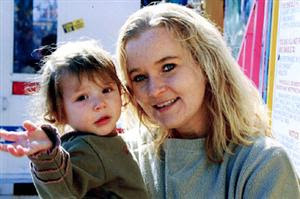
In 2006, Peggy Sue Hilt was sentenced to twenty-five-years in prison after she admitted to killing her two-and-a-half-year-old daughter, Nina, whom she had adopted from Russia. Originally from Ogdensburg, NY, Peggy had a relatively normal childhood, although she did have an alcoholic father and suffered from depression. At a very young age, she developed a drinking problem and even attempted suicide when she was in high school.
Peggy absolutely loved children and wanted nothing more than to have a family of her own. While in college, she met a man she soon married by the name of Christopher and the two ended up settling in Fairfax, VA. After more than four years of unsuccessful fertility treatments, it looked as if the dream Peggy always held of having children would never come to fruition. It’s worth mentioning that the young couple had tried to conceive naturally for a couple of years prior to the treatments. When I spoke to Peggy over the phone prior to writing this, she and I shared our infertility experiences (which were very similar). I asked if the clinic she went to offered any counseling and she said they had not.
When Peggy was twenty-nine, she and her husband adopted a little girl from the Ukraine named Nathalia. Peggy was over the moon. She adored being a mother; so much so that a couple of years later she and Christopher adopted another little girl, this time from Russia, named Nina. Unfortunately, things were much different with this adoption. Peggy and Nina were not bonding in the same way that she and Nathalia had bonded. It’s possible that Nina may have had special needs as this is not unusual with children that are adopted from institutional settings. Conditions are poor in these orphanages and the children don’t always get the proper care they need. Many develop what’s called “reactive detachment disorder” which is a condition, typically found in children before the age of five, who have been grossly neglected and have difficulty forming healthy emotional attachments with their caregivers. Children suffering from reactive detachment disorder prefer to be alone and are very hard to soothe and comfort.
As much as Peggy tried, she was unable to connect with her younger child. As Nina’s emotional and behavioral issues began to show through, it wasn’t unusual for her to push Peggy away when Peggy attempted to show affection or console her. Peggy’s husband Christopher saw first-hand the trouble between his wife and younger daughter, but never experienced it for himself as Nina never acted in this way in his care. As mentioned before, Peggy struggled with depression throughout her life. In time, she began to wonder what she was doing wrong as a mother. Why didn’t her little girl love her? All Peggy felt she could do was give Nina some more time and love and all would soon be well. This did not happen.
Suffice it to say, as Nina got older, the problems escalated, but the family never sought help. Nina frequently went into fits of rage, often attacking and biting her older sister. It wasn’t long before these difficulties began to take their toll on Peggy. Not only did her depression resurface, but she began, once again, drinking heavily. Peggy shared with me how much her depression had spiraled out of control. Suicidal thoughts began plaguing her and at one point she considered taking her daughters with her. The idea crossed her mind to fill up her car with gas and lock herself and her daughters in the car with the engine running while watching cartoons on the DVD player. Thinking about how her husband would feel was this only thing that stopped her.
A little more than a year after adopting Nina, Peggy discovered she was pregnant only to miscarry eight weeks later. Again, no counseling was sought and none was recommended by her doctors. Her miscarriage only reinforced what she had been thinking and feeling about herself: feelings of worthlessness, that she was broken, that there was something inherently wrong with her…so wrong with her that her little girl, Nina, couldn’t possibly love her. At one point there was a third child Peggy and Christopher planned on adopting. However, ten months into the process, they were informed the child would not be theirs. Obviously, these thoughts and feelings that began to take control over Peggy only exacerbated the trouble between her and Nina and Peggy’s bitterness toward her child began to grow and her drinking began spiraling out of control. While her husband knew she drank, he was either unaware of how bad things had gotten or he was in denial.
On July 1st, 2005, while her husband was at work, Peggy was home with her daughters, attempting to get them ready for a family trip. Peggy had been drinking that day and Nina, having a particularly bad day, attacked Nathalia with a fork. Unfortunately, Peggy reached her breaking point. Overwhelming rage took over the young mother, causing her to beat Nina, whom she had never even so much as spanked before. In her recollection, she grabbed Nina by the throat, shook her, took her up to her bedroom and repeatedly hit her. The next day, while on their family vacation, Nina succumbed to her injuries, many of them internal. Christopher had noticed some bruises on the child, but as Nina had tumbled down the stairs earlier they were attributed to this. Nina had many other bruises on her that he hadn’t seen.
Peggy admitted to what she had done to Nina and during our phone conversation never once made excuses for herself. When I asked if she would mind sharing her story with me, she did so while admitting that she wished she had gotten the help she now realizes she desperately needed at the time but also takes full responsibility for her actions. At one point during our conversation I mentioned how I was aware of her struggles with depression and while she did acknowledge this was true, she still, without hesitation took responsibility for her crime.
Since being in prison Peggy has gone through extensive counseling and hopes that her tragic experience will help others recognize that reaching out and seeking professional assistance is not a sign of weakness and at times most necessary.
At the beginning of this piece I asked you, the reader, to keep an open mind because, in doing my research into Peggy Sue Hilt’s case I saw comments from many people online dripping with anger. Yes, the crime she committed was horrific, there’s no denying that and she will never deny that. One thing I do have to say though, looking at Peggy’s background with depression, self-medicating, the raw pain that comes with being unable to conceive then miscarrying and the suicidal thoughts…this could have easily been me. This could easily have been many people.
[For those who may be reading this and asking how I can possibly empathize with someone who committed such a crime, at the risk of bringing religion into this, if you profess to be Christian then I ask you to remind yourself what Jesus would do. Remember that he laid His life down for every single person on this planet including Peggy Sue Hilt. And don’t forget how He spoke nonstop about loving one another. We are all imperfect and capable of doing all sorts things we say we’d never do.]
Peggy Sue Hilt’s case made international headlines, but I can’t help but wonder how many other cases like this take place that we don’t know about, particularly among families that are struggling or have struggled with infertility and depression? While depression does still have a stigma attached to it, the stigma attached to infertility is far worse. Yes, Peggy had issues prior to her treatments but don’t you think if the doctors and nurses had encouraged her to talk to counselors or recommended a therapist her story may have ended differently? Maybe if she had gotten help back then, the thought of getting help for her challenges with Nina might have crossed her mind.
The emotional toll that infertility takes on a person is immense. According to the Office on Women’s Health, U.S. Department of Health and Human Services, it can not only affect your emotional health but your mental health, as well.
Earlier I mentioned how the effects of not being able to conceive is comparable to losing a loved one in death. Imagine going through that heartache month after month. For many people, this repeatedly goes on for years. Try to remember a time when you lost someone in death, then imagine repeating that initial sorrow over and over. That’s what infertility feels like.
I would love nothing more than to see and hear more people share their stories, especially those who were unsuccessful and ultimately had to pick up the pieces of their lives and start moving in a different direction. At one time, cancer had a shameful stigma attached to it, now, thankfully, pink ribbons are everywhere. Marches take place all over the world in order to raise awareness.
Infertility has the ability to destroy marriages and bank accounts, cause depression and, the case of those already prone, exacerbate depression; cause social isolation, sexual dysfunction, and a myriad of health issues brought on by anxiety. Why aren’t more of us pushing aside our shame to bring more attention to this issue which would in turn, not only help others walking down that same lonely road we once walked, but possibly bring about more funding for research on the matter?

Get Involved:
- Homepage - RESOLVE: The National Infertility Association
RESOLVE: The National Infertility Association is dedicated to ensuring that all people challenged in their family building journey reach resolution.
References:
- Struggling with infertility in silence - Health - Women's health | NBC News
Infertility will strike one in eight American couples. So why are so many of us hiding this struggle from our friends and family?
Books by Brenda Thornlow. Free throughout the month of July.
- Books by Brenda Thornlow. Free throughout the month of July.
This is the biography page for Brenda Thornlow.
© 2018 Brenda Thornlow


